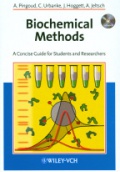A Researcher's Guide to the National Statistics Socio-economic Classification
David Rose and David Pevalin
ISBN: 9780761973225
Vydavateľstvo: SAGE Publications
Rok vydania: 2003
Väzba: Hardback
Pôvodná cena: 105,88 €
Výstavná cena:
90,00 €(t.j. po zľave 15%)
(Cena je uvedená vrátane 10% DPH)
Katalógová cena: 77 GBP
Nárok na
dopravu zdarma
Termín dodania na našu pobočku v Bratislave je približne 2-3 týždne.
'This book is well referenced, excellently produced, and deserves wide consultation' - International Journal of Market Research 'Health researchers in the US and globally would do well to study this book and consider its implications for monitoring and analyzing socioeconomic inequalities in health within and across diverse countries' - Journal of Public Health Policy As a result of a review conducted by the Economic and Social Research Council (ESRC) and the Office for National Statistics (ONS), both previous government social classifications, Social Class based on Occupation and Socio-economic Groups, were replaced in 2001 by a new classification, the National Statistics Socio-Economic Classification (NS-SEC). This book arises from original research, including primary data collection, undertaken by ESRC for ONS. There is a foreword from Gordon Marshall the Chief Executive of the ESRC. This book introduces researchers to all aspects of the new classification. In particular, it: - Fully describes the NS-SEC and elucidates its conceptual basis - Guides readers in how the NS-SEC has been validated as a measure - Evaluates how well NS-SEC works in describing and explaining the relationships between social class and key health and employment variables - Demonstrates the applications of NS-SEC in research The book will be required reading for all users of government social classifications. Its contents will also be of interest to sociologists concerned with the study of social inequality and courses in health inequality. Because of its inherent methodological interest the book will also be relevant to third year undergraduate and graduate courses that discuss how social scientists construct and validate basic measures.
